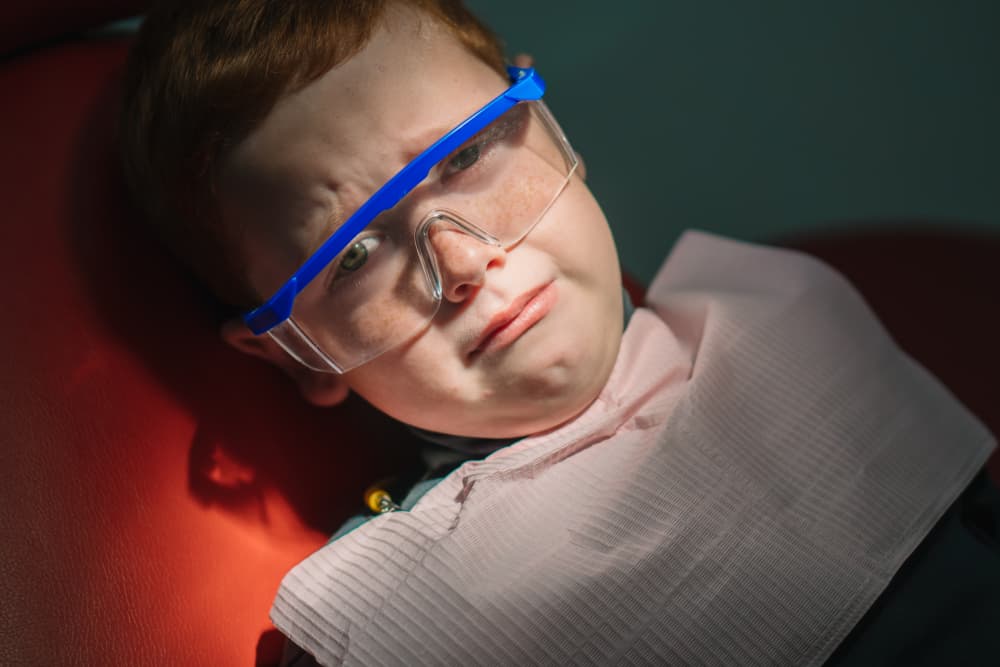Dental Phobia

Fear of dental treatment is, unfortunately, a major reason many people avoid visiting the dentist.
This often results in their only visits occurring when a problem has become so painful that they are forced to confront their fears and attend as an emergency case.
These emergency visits are the most psychologically traumatic, as treating acute infections from abscesses or severe, uncontrollable toothaches is often more challenging.
Such experiences are likely to reinforce dental phobias, contributing to the gradual breakdown of oral health and eventual loss of multiple teeth.
What Causes Dental Phobias?
Dental phobias are sometimes passed down inadvertently, as parents or older siblings transfer their own fears to a child before their first dental visit.
Simple comments—such as threats about going to the dentist or remarks about injections—can instill fear in a child.
An unpleasant experience, like a toothache or needing an injection in the mouth for an emergency, can also lead to a lifelong fear of the dentist.
Waiting for a problem to arise before taking a child to the dentist can foster dental anxiety.
One negative experience can create a lifelong fear, which may not be overcome, even with very caring treatment in the future.
There is no substitute for introducing a child to the dentist early, before any potentially painful issues arise or before any well-meaning relatives transfer their dental anxieties.
A child should ideally be introduced to the dentist around 2.5 years old, even if no treatment is needed at that time.
Continuing preventative measures to minimize the risk of dental issues is essential.
Helping a child reach their teenage years without experiencing a psychologically traumatic dental experience is key to fostering a lifetime of good oral health and a lack of dental fear.
In some cases, specific preventative measures can stop decay and eliminate decay-causing bacteria in a cavity by applying a small amount of silver fluoride, followed by stannous fluoride. This halts decay progression and must be reapplied to baby teeth every six months to retain these teeth until they naturally fall out.
Unfortunately, some people don’t believe in fluoride, which can prevent them or their children from benefiting from this treatment option.
What Else Causes Dental Anxiety?
The cost of dental treatment is another significant factor.
Given the high standards of oral health care in Australia, private dental treatment can be costly.
Unfortunately, delaying dental visits when a problem is known often complicates treatment, making it more expensive, as additional or more intensive measures may be required.
For example, a cracked tooth that might only need a crown to reinforce it could eventually lead to an emergency if left untreated. The crack may progress to the pulp (nerve) of the tooth, requiring a root canal or even extraction.
Another, less common, cause of dental anxiety is a history of local anesthetic injections not working effectively, particularly in the lower jaw. While this is a valid concern, an experienced dentist can usually address it, though it’s rare to encounter a case where all attempts to provide effective anesthesia fail.
A less common reason to avoid the dentist may arise when a patient has neglected a known problem, fearing the dentist will say, “I told you so.” While this fear is understandable, it is unlikely in a highly ethical practice.
For highly anxious patients, a general anesthetic may be the final option for receiving dental treatment. In the private system, however, this is more costly due to additional operating theater and anesthetist fees, and it is less frequently available in the public system.
Some patients who know they need a crown, splint, denture, or implant may worry about impressions being taken. Fortunately, this fear can now largely be avoided with digital scanning as an alternative to traditional impressions.
For those who cannot afford private care, there is the public dental system, which requires means-tested eligibility and often involves long waiting periods, or dental schools, where patients can receive treatment from supervised students.


